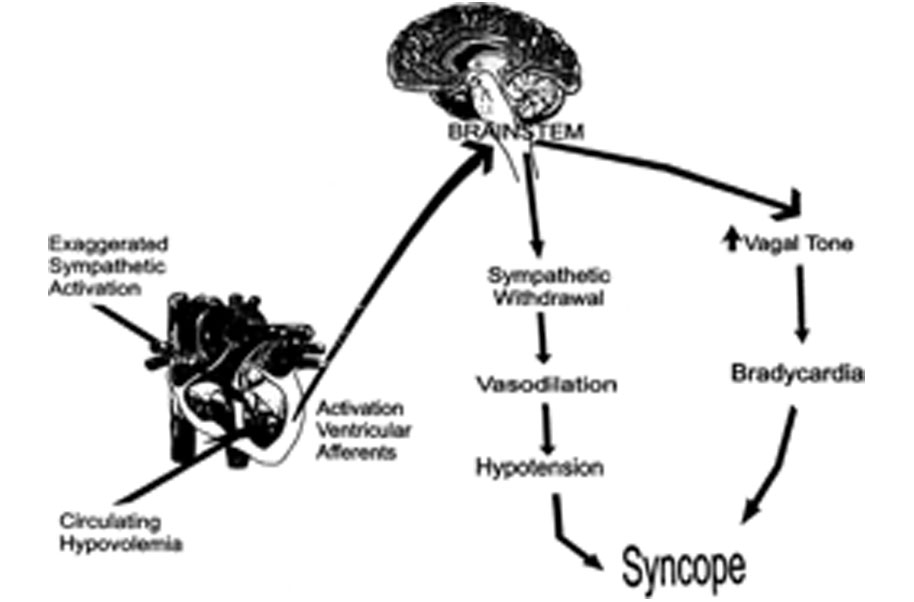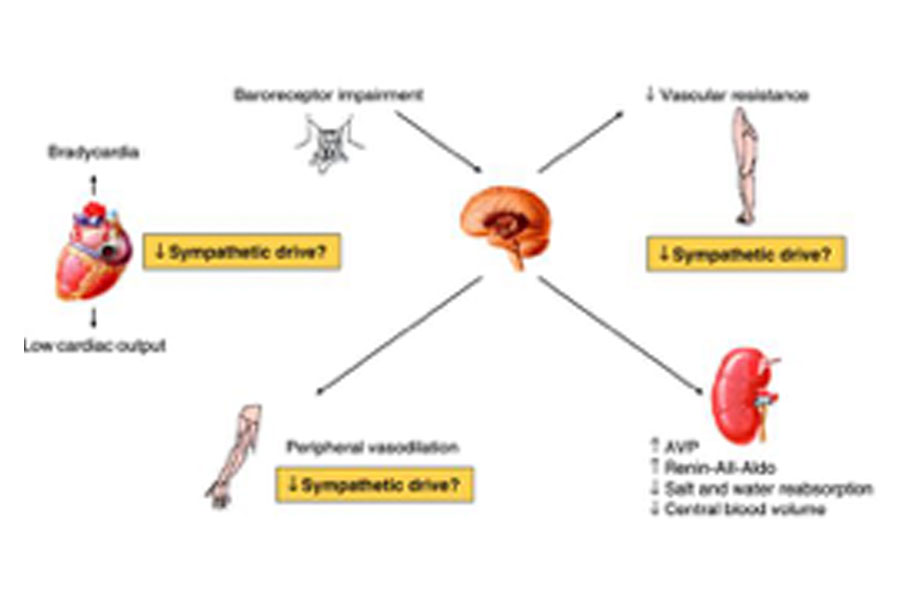Diseases
Neurocardiogenic Syncope
Medical definition of vasovagal syncope. : a usually transitory condition that is marked especially by fainting associated with hypotension, peripheral vasodilation, and bradycardia resulting from increased stimulation of the vagus nerve — called also neurocardiogenic syncope, vasodepressor syncope.
SYMPTOMS
Before you faint due to vasovagal syncope, you may experience some of the following:
- pale skin
- lightheadedness
- tunnel vision — your field of vision narrows so that you see only what's in front of you
- nausea
- feeling warm
- a cold, clammy sweat
- yawning
- blurred vision
- During a vasovagal syncope episode, bystanders may notice:
- jerky, abnormal movements
- a slow, weak pulse
- dilated pupils
- Recovery after a vasovagal episode generally begins in less than a minute. However, if you stand up too soon after fainting — within about 15 to 30 minutes — you're at risk of fainting again.
CAUSES
Vasovagal syncope occurs when the part of your nervous system that regulates heart rate and blood pressure malfunctions in response to a trigger, such as the sight of blood.
Your heart rate slows, and the blood vessels in your legs widen (dilate.) This allows blood to pool in your legs, which lowers your blood pressure. Combined, the drop in blood pressure and slowed heart rate quickly reduce blood flow to your brain, and you faint.
Sometimes there is no classical vasovagal syncope trigger, but common triggers include:
- standing for long periods of time
- heat exposure
- seeing blood
- having blood drawn
- fear of bodily injury
- straining, such as to have a bowel movement




Chitradurga
Seebara, Behind Indian Oil Petrol Bunk, Basavakumara Swamy Mutt, Chitradurga - 577504
Kunigal
K Huraliborsandra, Gowdgere Post, Dhomratti Temple Road, Kunigal, Tumakuru District. - 572130
Bengaluru
36, KG Gollarapalya, Bolare (P), Kanakapura Road, Bengaluru - 560082

